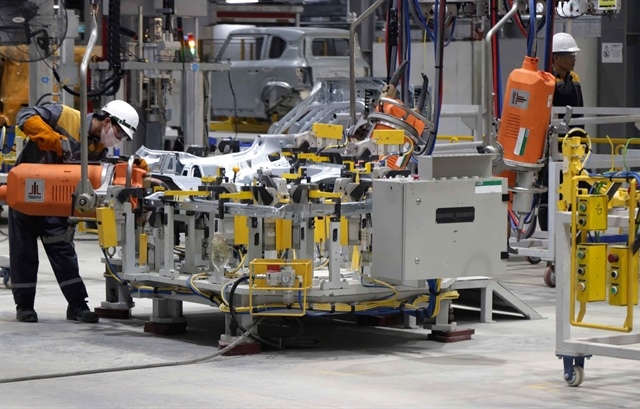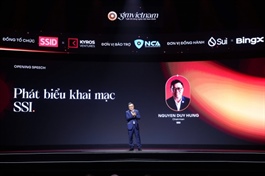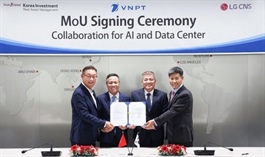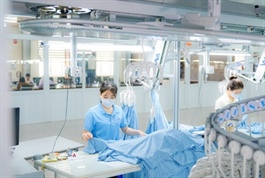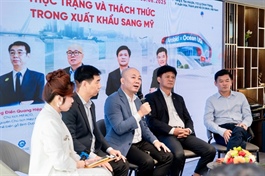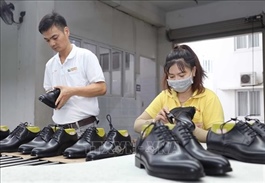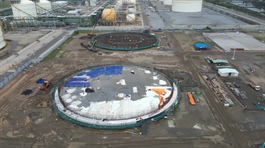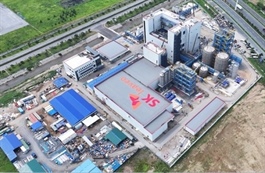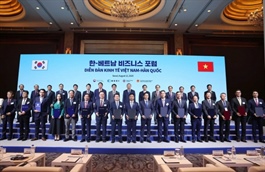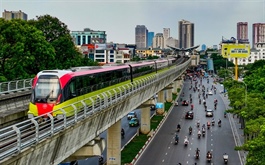Ho Chi Minh City - Busan Business Forum expands links in strategic sectors
Ho Chi Minh City - Busan Business Forum expands links in strategic sectors
The Ho Chi Minh City - Busan Business Forum, jointly organised by Ho Chi Minh City People’s Committee and the Busan city government on August 13 in South Korea, attracted hundreds of Vietnamese and Korean enterprises looking to connect and explore two-way investment opportunities.
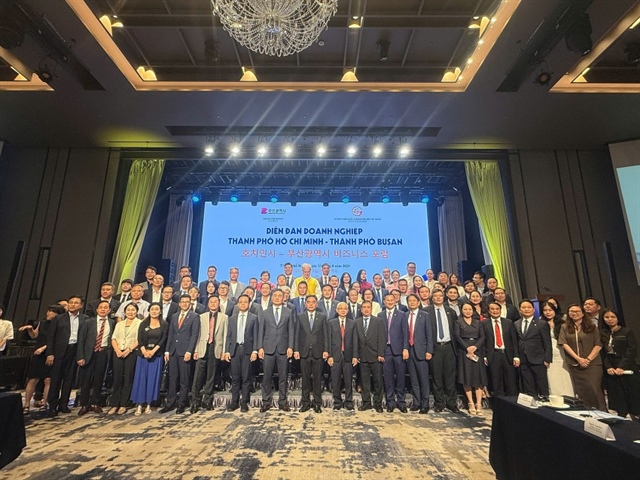
The Ho Chi Minh City - Busan Business Forum was jointly organised by Ho Chi Minh City People's Committee and the Busan city government on August 13 in South Korea |
In his opening remarks, Vice Chairman of the Ho Chi Minh City People's Committee Nguyen Loc Ha emphasised that over the past 30 years, Ho Chi Minh City and Busan have built a strong cooperative relationship across multiple areas, from trade, investment, education, healthcare, and logistics, to high technology, smart cities, and marine tourism.
“Cooperation between the two localities is not limited to economic indicators but also reflects joint efforts to adapt to and lead new development trends such as the digital economy, green economy, and sustainable global connectivity,” Ha said.
"Ho Chi Minh City will continue to improve the investment and business environment, streamline and make administrative procedures more transparent, and maintain stable preferential policies for foreign investors, especially from South Korea. It will also focus on enhancing the capacity of transportation, seaports, logistics, energy, and telecommunications infrastructure, facilitating innovation, supporting the startup ecosystem, connecting research and development, and promoting high-value-added trade and services," he added.
"This forum will be the starting point for many new cooperation ideas, the formation of strategic partnerships, and the nurturing of iconic projects. The success of the event will be measured by the trust and long-term cooperation engagements," he stressed.
Ho Chi Minh City currently covers more than 6,700 km, has a population of nearly 14 million, and a regional GDP of over $115 billion, with the goal of becoming an “international megacity”, and a leading ASEAN centre for finance, trade, logistics, and high technology.
Based on the potential for cooperation, Ha called on Korean enterprises, especially those from Busan, to invest in five priority sectors: high-tech and semiconductor industries, logistics and seaports, international finance and trade services, high-quality education, healthcare, and tourism, and smart city and green economy development.
Busan vice mayor Lee Jun-seung expressed appreciation for the Ho Chi Minh City delegation, highlighting that the friendship and cooperation since 1995 have brought about tangible results in transportation, urban planning, culture, and seaport development.
“With many similarities in geography and urban structure, Busan, South Korea's leading port city, and Ho Chi Minh City, Vietnam's largest economic hub, have great potential for cooperation,” he noted.
The forum's discussion session focused on specific cooperation, such as green transition, high-tech industry development, AI applications in healthcare, smart city building, and expanding two-way tourism.
Ho Chi Minh City authorities and representatives from Busan engaged in direct exchanges on potential opportunities, support policies, and development orientations, helping businesses from both sides clearly identify practical investment prospects.
Dinh Hong Ky, Vice Chairman of the Ho Chi Minh City Business Association (HUBA) and chairman of Secoin Corporation, stressed that in a volatile global context with a climate crisis, businesses, especially small- and medium-sized enterprises in Ho Chi Minh City, must overcome challenges related to capital shortages, green technology adoption, and the dual pressure of reducing emissions while pursuing growth.
"With its expansion and connection to Binh Duong and Ba Ria–Vung Tau, Ho Chi Minh City is moving towards a megacity model with three green growth pillars: financial innovation, sustainable industry, and renewable energy. Busan and South Korea possess technological strengths and experience in green development, opening up a 'golden time' for cooperation. Priority areas include environmental technology, renewable energy, circular economy, and human resources training according to ESG standards," Ky said.
A highlight of the event was the signing of cooperation memoranda between Korean and Ho Chi Minh City businesses. Among them, Becamex IDC and Korea Land and Housing Corporation agreed to jointly develop smart urban areas, Becamex and LS Electric will implement a smart factory project in Vietnam, NTD AI Healthcare Vietnam and NTL Healthcare Korea signed an agreement to use AI for cervical cancer screening, and Epsi Vietnam and Myongji Hospital Korea will cooperate to build a leading nursing and rehabilitation facility in Ho Tram, a coastal district of Ho Chi Minh City, among others. These agreements open new channels for technology, resources, and market connectivity between the two sides.
Currently, South Korea is the fourth-largest foreign investor in Ho Chi Minh City, with more than 3,000 valid projects and the total registered foreign investment exceeding $5.5 billion. Korean enterprises, including those from Busan, are playing an increasingly important role in the city's socioeconomic development and its industrialisation–modernisation process.
Since 2008, Busan has maintained a trade office in Ho Chi Minh City, promoting business exchanges, implementing training and volunteer programmes, organising cultural exchanges, and contributing to stronger mutual understanding and friendship between the people of the two cities.
- 12:08 14/08/2025






